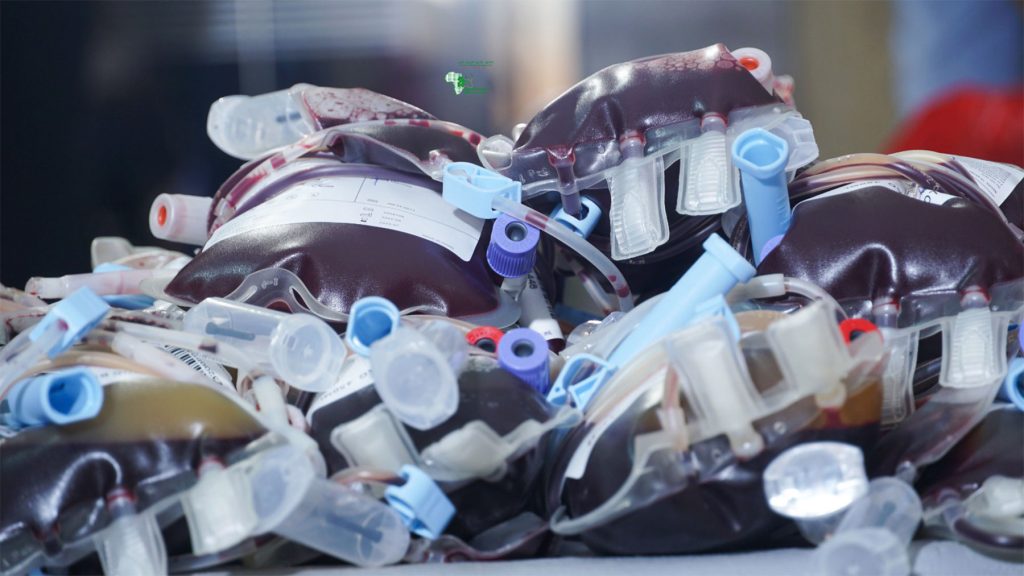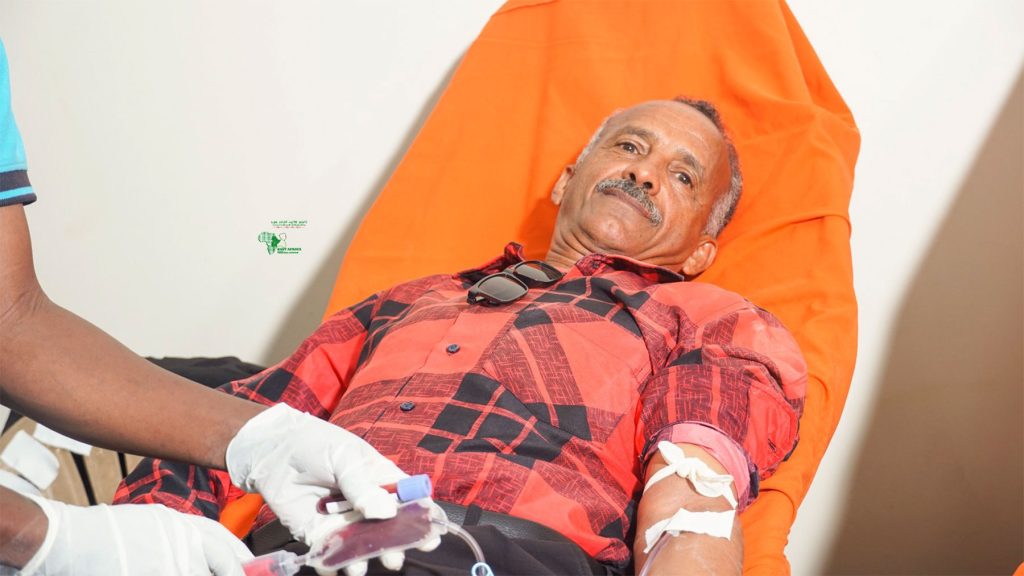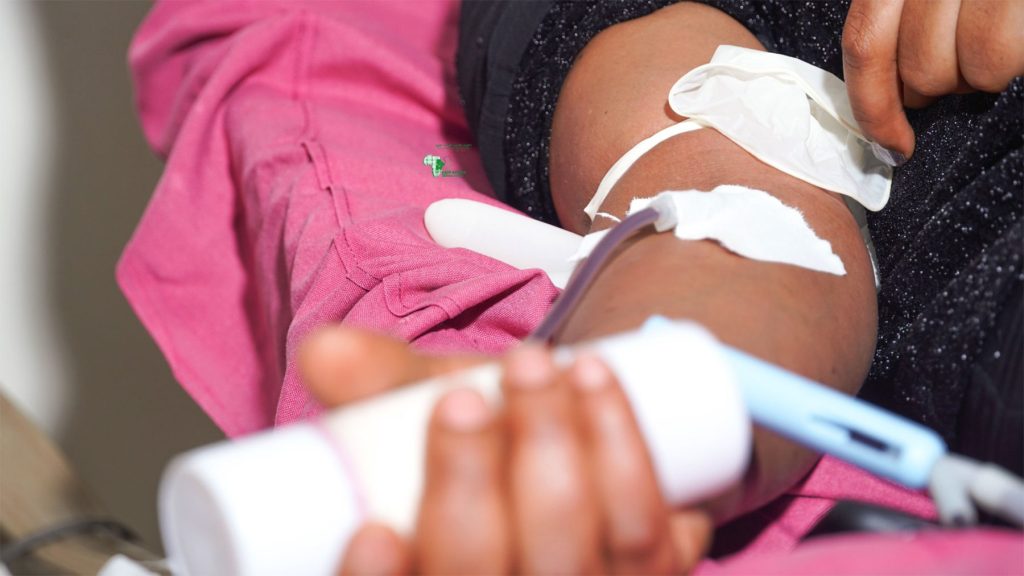We bring you the 4 major blood donation tips you should know as a donor! As we prepare for our 11th blood donation edition on 16th March 2024, East Africa International Medical Center hopes to at least collect over 200 units on this day.
Various studies show that regularly donating blood may improve your heart health because donating reduces the thickness of your blood, allowing it to flow more easily through your body and reach your heart faster. It’s reported that over one hundred million units of blood are donated each year throughout the world.
This is why we’re organizing a blood donation workshop this month as a way of supporting the community by saving the lives of those who need blood. We have been doing this for the last 2 years making 10 times blood donation workshops and getting more than 500 units that were sent to the national blood bank in Mengo.

Table of Contents
What is Blood Donation?
Blood donation is the procedure that relates to blood transfusion as a life-sustaining and life-saving act as well as a form of therapeutic phlebotomy as a primary medical intervention as it is a vital part of worldwide healthcare.

There are several types of blood donation, and each type helps meet different medical needs.
Types of Blood Donation
Whole blood donation
Whole blood donation is the most common type of blood donation. During this donation, you donate about a pint which is about half a liter of whole blood. The blood is then separated into its components; red cells, plasma, and sometimes platelets.
Apheresis
During apheresis, you are hooked up to a machine that collects and separates different parts of your blood. These blood components include red cells, plasma, and platelets. The machine then returns the remaining parts of the blood back to you.
Plateletpheresis
This is also known as platelet donation as it involves collecting only platelets.
Platelets are the cells that help stop bleeding by clumping and forming plugs in blood vessels or clotting.
Donated platelets are commonly given to people with clotting problems or cancer and people who will have organ transplants or major surgeries.
Double red cell donation allows you to donate a concentrated amount of red blood cells. Red blood cells deliver oxygen to your organs and tissues.
Donated red blood cells are typically given to people with severe blood loss, such as after an injury or accident, and people with anemia which is the low hemoglobin content.
Plasma donation collects the liquid portion of the blood (plasma). Plasma helps blood clot and contains antibodies that help fight off infections.
Plasma is commonly given to people in emergency and trauma situations to help stop bleeding.
The 4 Major Blood Donation Tips You Should Know as A Donor

If you plan to be a part of the workshop and give blood on 16th March 2024, there are some crucial steps you have to follow. So, here are the 4 major blood donation tips you should know as a donor
Drink Plenty of Water
Undoubtedly, staying hydrated makes it easier to find your veins and helps prevent you from becoming light-headed after donating.
Our medical specialists recommend planning a couple of days by making sure you’re well hydrated and avoid drinking much alcohol the day or two before donating.
Eat Well Beforehand
It would help if you did not skip breakfast and be sure to eat snacks offered to you after you donate. Make sure that you eat at least one balanced meal before donating.
If you’ve eaten enough and had enough fluids to drink the day you donate, you’ll be much less likely to have a donor reaction, like feeling dizzy during or after donation.
Exercise Before Donating Blood, Not Afterward
It’s OK to go to the gym before you donate blood but not so wise there afterward because you might feel tired or dizzy. So take it easy for the rest of the day and minimize physical activity.
Take Iron Tablets
The Red Cross recommends that individuals who donate blood frequently take an iron supplement or a multivitamin with iron.
Notably, it’s recommended that teenage donors, in particular, take iron, because it’s been shown that teenage donors may become iron deficient after blood donation.
Read more health content here.

